Much More than the Notes
Episode 1. Val Wilmer
Much More than the Notes is a podcast series dedicated to music, its poetics, and its politics. It offers interviews with personalities whose life and work is strongly entangled with music, whether they are musicians or not. Life stories that remind us that music is much more than artistry, a pleasant form of entertainment, or mere fashions, underscoring that the political in this particular discipline should not be reduced to the lyrical or to artists who explicitly (or not so explicitly) express a conscious commitment to a cause. We talk about how the sonic has effects beyond these more obvious aspects, articulating different ways of understanding the world and being in it. Whether it be New York deep house, jazz in its various transformations and phases, border music born between Mexico and the United States, or the echoes of West Indian dub that resonate in migrant communities in the United Kingdom, the dynamics of these effects can be found.
The series opens with an interview with the English writer, photographer, and historian Val Wilmer. A starting point that was chosen for good reason, as the title Much More Than the Notes is a quote from her autobiography, Mama Said There'd Be Days Like This: My Life in the Jazz World (1989). In one of the passages of this book, Wilmer describes a concert by The Art Ensemble of Chicago and Fontella Bass that she attended in Paris in the early 1970s and the impact it had on her. A period that was not lacking in socio-political turmoil. The legendary free jazz unit — responsible for coining the motto Great Black Music: Ancient to the Future — delivered an intense performance that merited a standing ovation from the audience, a good percentage of which was of African descent. The acclaim resulted in a spontaneous explosion of joy and black solidarity that erased the barriers between the stage and the audience. An important realization dawned on Wilmer in that moment. She recalls it in her memoirs: "Too much history had passed for that to be possible: the music was much more than the notes." It doesn't matter how much you love or think you know about an artist's work, composition, or genre. As Wilmer’s experience shows, we must accept that not belonging to a particular culture will always make it impossible to apprehend and participate in it fully.
Setting aside the trite and misleading argument that music is a universal language, this series delves into music as a matter of specific cultural practices, shared knowledge, and affect. Sometimes across generations, and sometimes within communities, networks, or groups. And it is, above all, a matter of power, of material relations, and even of conflicts. In short, it is much more than the notes.
Valerie Wilmer (Yorkshire, 1941) is an English writer, photographer, and historian specializing in jazz, blues, gospel, and British African-Caribbean music and culture. Wilmer's career as a journalist began in the late 1950s. Since then, she has interviewed and written about countless artists. Wilmer is the author of knowledgeable and respectful books on jazz and black music: Jazz People (1970), The Face of Black Music (1976), As Serious as Your Life: The Story of The New Jazz (1977), and her autobiography Mama Said There'd Be Days Like This: My Life in the Jazz World (1989). She has contributed to several publications, including Melody Maker, Jazz Journal, Down Beat, The Wire, and The Guardian. Her photographs are part of the collections of institutions like the National Portrait Gallery (London), the Musée d'Art Moderne (Paris), the Victoria and Albert Museum (London), the Smithsonian Museum (Washington D.C.), the Schomburg Center for Research in Black Culture (New York) and the Bishopsgate Institute (London).
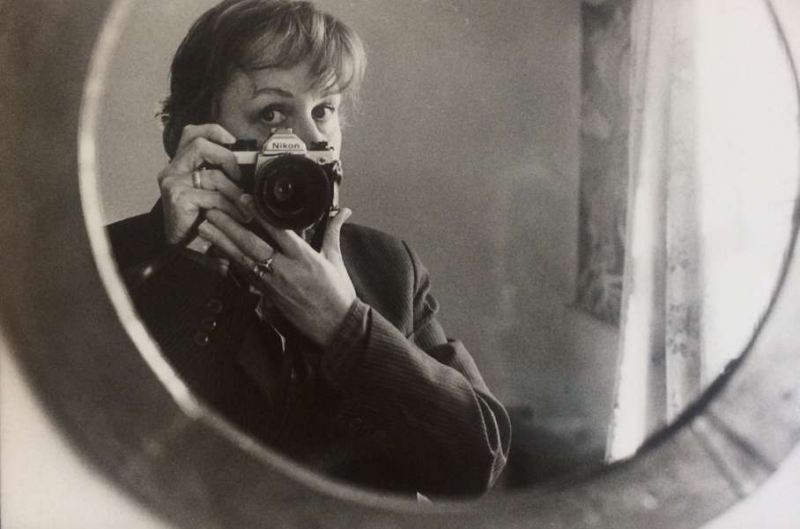
Self-portrait by Val Wilmer. Courtesy of The Streatham Society
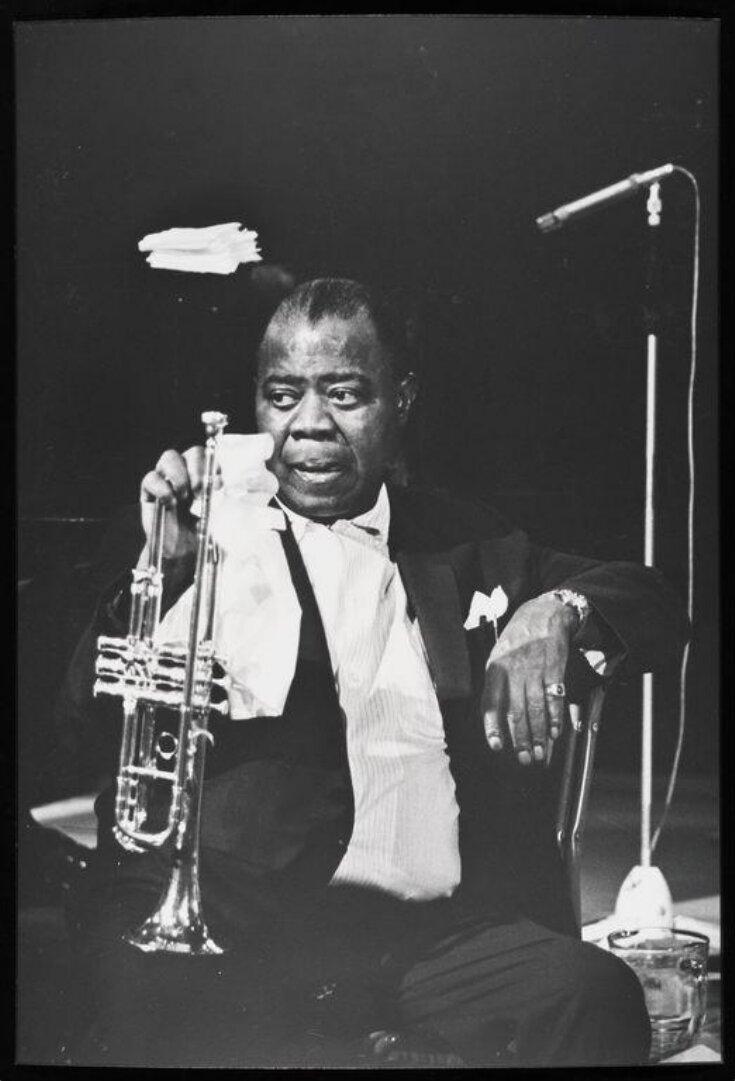
Val Wilmer, Louis Armstrong during a concert at the BBC TV Theatre, London, June 1965, 1965. © Val Wilmer / Victoria and Albert Museum, London
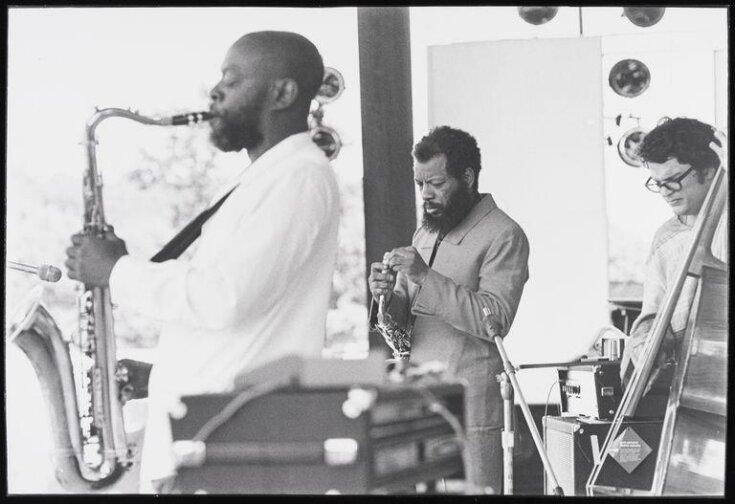
Val Wilmer, Ornette Coleman at Newport, Rhode Island, USA, July 1971, 1971. © Val Wilmer / Victoria and Albert Museum, London
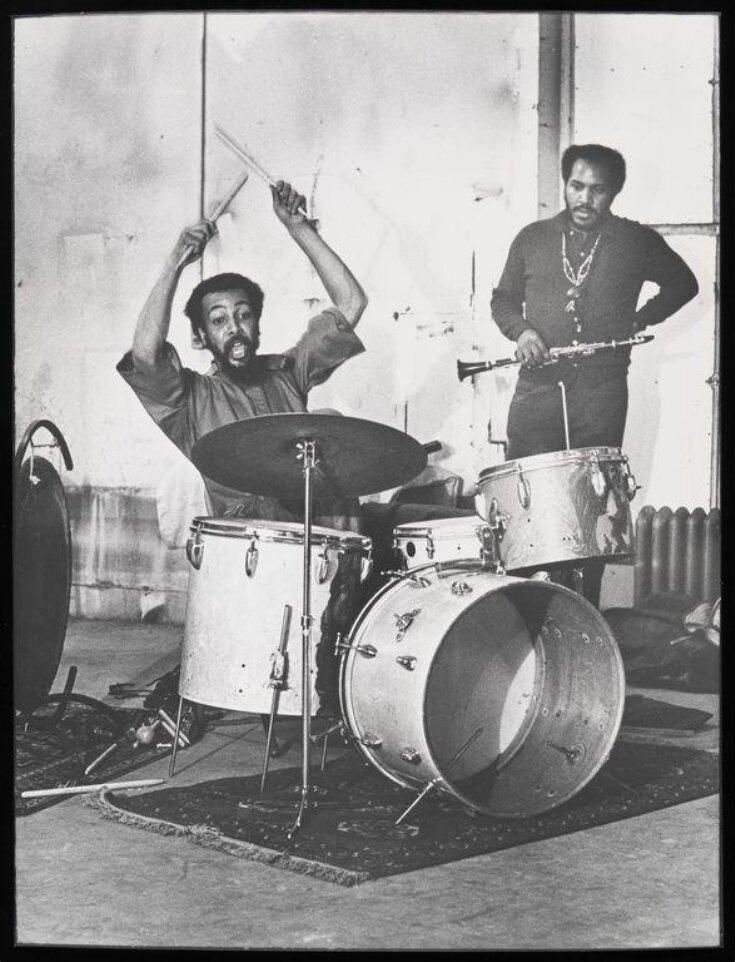
Val Wilmer, the drummer Milford Graves, Harlem Music Center, New York, October 1971, 1971. © Val Wilmer / Victoria and Albert Museum, London
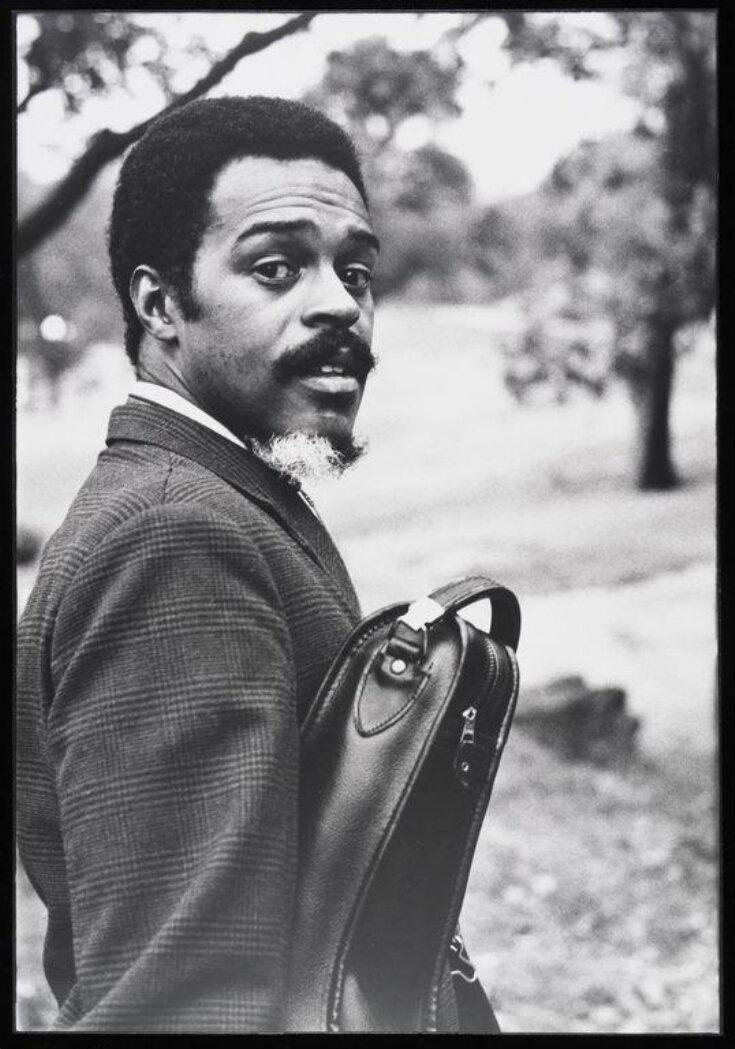
Val Wilmer, Albert Ayler, taken in the open air in New York, September 1966, 1966. © Val Wilmer / Victoria and Albert Museum, London
Share
- Date:
- 20/12/2023
- Production:
- Rubén Coll (Interviews and editing)
- Voice-over:
- Sarah Iacobucci
- Acknowledgements:
Richard Koloda, Derek Walmsley, Andrea Zarza, Jerilyn Gonçalves, José María Llanos, Cristina Martínez, Olga Sevillano, José Luis Espejo, Belén Benito and Sarah Iacobucci
- License:
- Produce © Museo Nacional Centro de Arte Reina Sofía (con contenidos musicales licenciados por SGAE)
Audio quotes
- Art Ensemble of Chicago. "Theme De Yoyo" from Les Stances À Sophie. Universal Sound (1970/2000)
- Art Ensemble of Chicago. "Kabalaba Speaks" from Kabalaba: Live At Montreux Jazz Festival. AECO Records (1978/1997)
- New Orleans Wanderers. "Perdido Street Blues" from Johnny Dodds. Classics (1926/1991)
- Humphrey Lyttelton & His Band. "Fidgety Feet" from Fidgety Feet/March Hare. Parlophone (1952)
- Duke Ellington. "Someone" from Never No Lament: The Blanton-Webster Band. Bluebird (1942/2003)
- Louis Armstrong & The All Stars. "My Bucket's Got A Hole In It" from Columbia And RCA Victor Live Recordings Of Louis Armstrong And The All Stars. Mosaic (1956/2014)
- Duke Ellington, Charles Mingus y Max Roach. "Money Jungle" from Money Jungle. Blue Note (1962/2016)
- Lord Kitchener and Friends. "London Is The Place For Me" from London Is The Place For Me: Trinidadian Calypso In London, 1950-1956. Honest Jon’s (1951/2002)
- West African Rhythm Brothersyd. "Ominira" from London Is The Place For Me 2: Calypso & Kwela, Highlife & Jazz From Young Jazz London. Honest Jon’s (1959/2005)
- Charlie Parker’s Reboppers. "Now’s The Time" from The Complete Savoy & Dial Master Takes. Savoy Jazz (1945/2002)
- McCoy Tyner. "Autumn Leaves" from Today And Tomorrow. Sparton Impulse! (1964/2009)
- Milford Graves with Sunny Morgan. "Nothing 5-7" from Percussion Ensemble. ESP-Disk (1965/2008)
- Sunny Murray. "Phase 1.2.3.4" from Sunny Murray. ESP-Disk (1965/2007)
- Albert Ayler Quintet. "Holy Family" from Spirits Rejoice. ESP-Disk (1965/2012)
- Ornette Coleman. "Free Jazz" from Beauty Is A Rare Thing (The Complete Atlantic Recordings). Atlantic (1960/2015)
- Sun Ra. "Dancing In The Sun" from The Heliocentric Worlds Of Sun Ra (Vol. 1). ESP-Disk (1965/2010)
- Albert Ayler. "Omega Is The Alpha" from Live In Greenwich Village - The Complete Impulse Recordings. Impulse! (1967/1998)
- Marion Brown Quartet. "La Sorrella" from Why Not?. ESP-Disk (1968/2009)
- Sonny Sharrock. "Black Woman" from Black Woman. Water (1969/2005)
- Marion Brown. "Porto Novo" from Porto Novo. Black Lion (1969/1995)
- Ornette Coleman. "Lonely Woman" from Beauty Is A Rare Thing (The Complete Atlantic Recordings). Atlantic (1959/2015)
- Melba Liston. "You Don’t Say" from Melba Liston and Her 'Bones. Fresh Sound Records (1960/2006)
- Mary Lou Williams Trio. "Free Spirits" from Free Spirits. SteepleChase (1976)